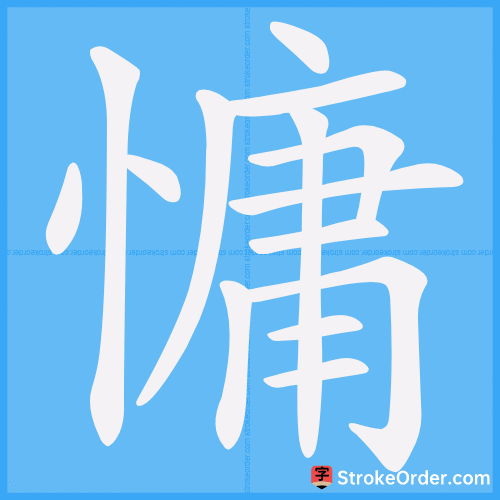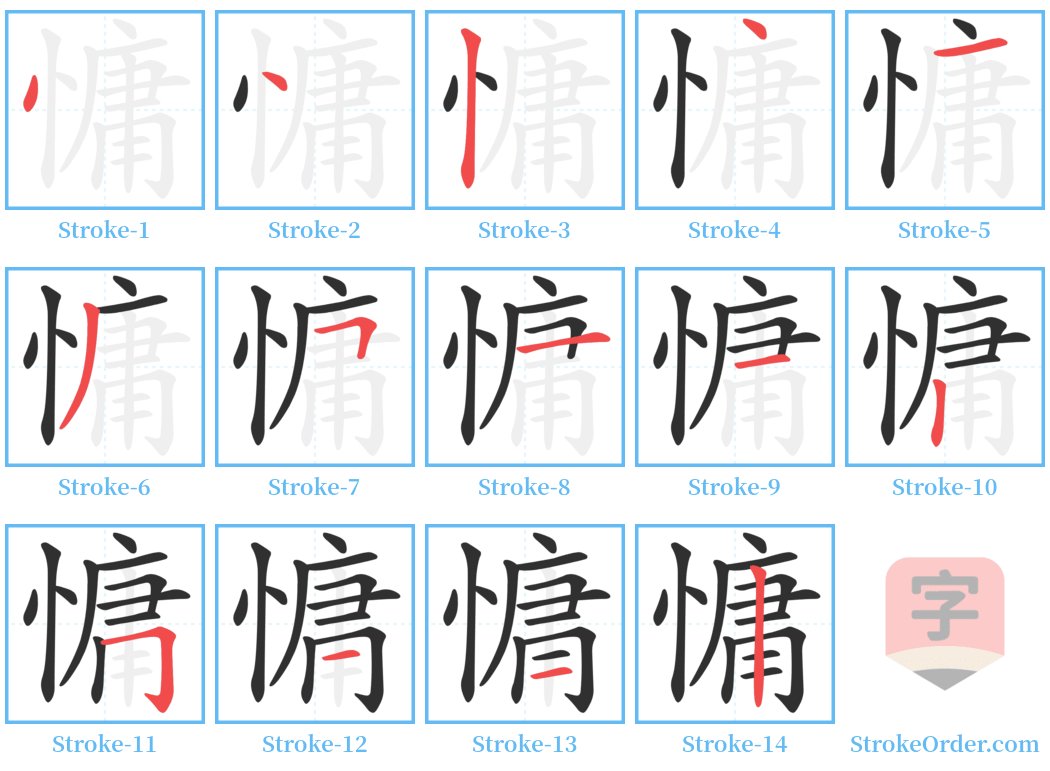慵 Stroke Order
Animated Stroke Order of 慵

Stroke Order Diagrams for 慵

Step-by-Step Handwriting Guide for 慵

Learn to Write Chinese Characters with Video Tutorials
Watch the video of writing the Chinese character "慵", learn the correct stroke order (笔顺) of the character "慵", and master the standard way of writing the character "慵".
Free Printable Handwriting Practice with Stroke Order: 慵
Printable Writing Practice Worksheet of "慵" in Portrait Orientation (Tian Zi Ge)

Printable Writing Practice Worksheet of "慵" in Landscape Orientation (Tian Zi Ge)

Information of 慵
Pinyin
yōng
Radical
忄
Strokes
14 strokes
Usage
★★★★
Definition
careless
慵 [yōng]
Definition:
1. Languid; lethargic; feeling tired and lazy to move.
Usage examples:
- 慵困 (yōng kùn): feeling languid and drowsy.
- 慵懒 (yōng lǎn): lazy and unwilling to move.
- 慵惰 (yōng duò): lethargic and idle.
- 慵倦 (yōng juàn): weary and fatigued.
2. Same as "庸" (yōng). Commonplace; mediocrity.
Usage examples:
- 慵人 (yōng rén): a mediocre person; someone who is unremarkable.
Origin: The character is formed by the phonetic component "庸" and the semantic component of "heart" (心), indicating indifference or laziness in one's demeanor or actions.
Example from literature:
《封神演义》: 行旅畏威慵举步,佳人怕热懒登台。
(Translation: Travelers feared the威 (power) and walked lazily; the beautiful women were reluctant to take the stage due to the heat.)
Note: This character also conveys a sense of idleness and lack of ambition, capturing the essence of being unmotivated or lethargic in both physical and mental aspects.
Input Method for 慵
Pinyin
yong1
Wubi
nyvh|novh
Cangjie
pilb
Zhengma
utxl
Four Corner
90027
Unicode
U+6175
Same Pronunciation Characters